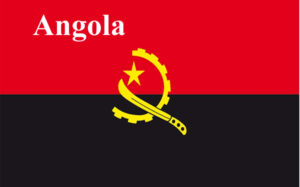 Thirty years of civil conflict left Angola with widespread shortages of classrooms and teachers. Now that the country is at peace, the Angolan government has committed to reforms aimed at improving access to learning for all citizens. With its economy returning to stability and with the help of the international community, Angola is making steady progress towards a brighter educational future.
Thirty years of civil conflict left Angola with widespread shortages of classrooms and teachers. Now that the country is at peace, the Angolan government has committed to reforms aimed at improving access to learning for all citizens. With its economy returning to stability and with the help of the international community, Angola is making steady progress towards a brighter educational future.
Primary, or general basic education, is broken into three levels. Level one is mandatory and comprises four grades. Levels two and three consist of two grades each. Secondary education channels students into either a three-year general track, for pre-university students, or a four-year technical/vocational track. Both tracks culminate in the Habilitacaos Literarias, or secondary school leaving certificate.
The following chart depicts the grading scale for secondary and post secondary institutions:
| Scale | Grade Description | U.S. Grade Equiv. |
|---|---|---|
| 15-20 | Excelente (Excellent) | A |
| 12-14 | Bom (Good) | B |
| 10-11 | Suficiente (10 lowest passing grade, post-secondary) | C |
| 8-9 | 8 lowest passing grade, secondary | C |
| 1-9 | Reprovado (Insufficient) | F |
Primary school curriculum includes Portuguese, mathematics, science, physical education, art, and music. Students in the fourth and fifth years of primary school also take history and geography, while those in grades 7 and 8 add chemistry, biology, and a foreign language.
Secondary students learn Portuguese, math, history and geography, English or French, art or music, and physical education. Depending on their academic path, students may also take information technology, philosophy, economics, natural or physical science, or work-related courses.
Higher education in Angola is provided by universities such as the state-run Universidade Agostinho Neto, which has 40-some facilities throughout the country. Several private and religious schools, many linked to European institutions, offer a variety of degree programs, while polytechnic institutes provide professional and practical training. The Angolan government, with the assistance of foreign countries, has begun rolling out vocational training facilities to fill the need for a more skilled workforce.
© 2025 Gaetranslations | Terms & Conditions
Website by: Timefortheweb